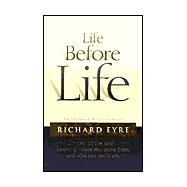With this provocative query, New York Times #1 bestselling author Richard Eyre begins a remarkable discussion of our spiritual origins. He draws upon a host of sources -- from C. S. Lewis to T. S. Eliot, New and Old Testament scripture, apocryphal writings from the first century, the popular spiritualism of Thomas Moore and James Redfield, using common experiences like intuition and deja vu, and most pointedly from his own spiritual experiences and promptings to argue that we existed previous to our birth, not as animals or other people, but as ourselves.
Written in the pragmatic style for which he is known, this book suggests how readers can come to a knowledge of the age of their souls and then how such a knowledge can radicalize their sense of self and their relationships with others.








